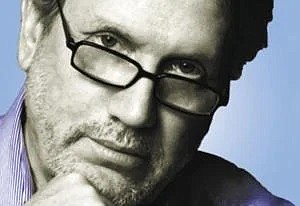March 7, 2024 at 6:30 a.m.
By Brian Howey
In the nascent days of his administration, Gov. Eric Holcomb found himself confronted with Willie Nelson’s huge Prevost tour bus — the Honeysuckle Rose — in Evansville. Calls were made, and in short order the governor’s boot heels were ambling up the RV steps.
According to sources close to the governor, Holcomb’s appearance set off the kind of housekeeping that would ensue when an RA shows up at a dorm kegger. Willie’s love of weed is widely known.
After chatting for 20 minutes or so, Holcomb tweeted out a photo of himself and the star, saying, “Amazing who you’ll meet when you’re on the road again. Thanks, @willienelson for taking a couple of minutes to meet this lifelong fan.”
This column isn’t about cannabis reform (Holcomb has consistently said he will enforce federal cannabis laws until the FDA reschedules it, making Indiana a veritable reefer island), nor is it about the 50 Indiana National Guard troops the governor has committed to send to the southern border some 400 miles southwest of Willie’s Luck, Texas, hideaway.
I caught his concert at the local amphitheater in Key West, Florida, and in talking with fellow fans, it became clear that in today’s deeply political polarization in America, Willie Nelson is one of the few figures who transcend the right and the left.
The 90-year-old is in a class by himself, having written more than 2,500 songs, recorded more than 250 albums and appeared before more than 3 million fans at live venues. Rocker Neil Young appeared with Nelson at Farm Aid in Noblesville last fall. “This is the man who started the whole thing,” Young said of the phone call he received from Nelson when Farm Aid was held in Indianapolis in the ’80s.
Nelson said at a pre-Farm Aid presser last fall: “It’s a minor miracle all of us are all together again after 36 years. Thank you, farmers, for taking care of us, giving us good food to eat. Where I grew up in Abbott, Texas, I grew up on a farm. I picked cotton; I baled hay. I did all that stuff and I know how hard it is, but I know how good it is when you do it right.”
So in these days of deep political polarization, why is Willie Nelson at the social fulcrum? In his 2006 book, “The Tao of Willie: A Guide to the Happiness in Your Heart,” Nelson describes his suicidal days in Nashville when his hog farm went pork-belly up, his house burned down and he returned to his native Texas and rejoined the Austin music scene at the Armadillo World Headquarters.
“The Armadillo was nothing fancy,” he writes, “but the beer was cold and the jalapeños on the nachos were hot, and the audiences — who were a wild mix of cowboys and hippies — liked all kinds of music.”
This mutual compatibility with the right and left is worth exploring at this juncture as America heads into a jarring presidential race with democracy literally in the crosshairs.
What is the Tao of Willie? I’ll let him explain:
“As far as different religions are concerned, to me they’re just different paths leading to the same place. A thousand paths to a single destination.”
There’s his adherence to the Golden Rule: “[I]f every person, every business, and every government simply followed the Golden Rule in all their decisions, everything else would just fall into place.
“Do unto others as you would have them do unto you.”
On our security: “As nations, we prepare much more for war than we do for peace, and in doing so, we make war inevitable. Achieving peace through strength doesn’t necessarily mean you need bigger tanks or missiles, for peace can also be achieved through personal strength. …
“No matter what you do, be truthful. …
“You’ll never get ahead by blaming your problems on others. …
“If you forgive your enemies, it messes up their heads. …
“Keep skunks of all kinds at a distance. …
“Life is not about how fast you run or how high you climb, but how well you bounce.”
In the Tao of Willie, life is about playing music with his family and friends, and at each concert, he seeks out a friendly face, a surefire avenue to connect with his audiences. But Willie Nelson has limits to his friendship:
“If you throw trash along the highways or foul our rivers, I’m sorry to say you are not my friend.” (This assessment would certainly get the Holcomb stamp of approval as he has been obsessed with litter remediation along Hoosier interstates and highways.)
“If you think that people whose skin is a different color from yours are beneath you, then you, particularly, are not my friend.
“If you mistreat those who are smaller and weaker than you, you are not my friend.”
Yes, these are relevant guideposts for public servants, politicians and voters.
I watched 90-year-old Willie Nelson do a two-hour show, playing longtime favorites “Still Is Still Moving to Me” and “Angels Flying Too Close to the Ground” and, of course, “On the Road Again.” He didn’t banter between songs, but his voice was durable, strong and forever Willie.
After the show, my friends and I ended up at the Green Parrot for a couple of rounds, and as we Ubered home, we joined the procession of Prevost tour buses. Here was Willie Nelson at Mile Marker 0 at the U.S. 1 proverbial “end of the road,” heading back north across the Keys and back into the American mainstream.
Brian Howey is senior writer and columnist for Howey Politics Indiana/State Affairs, where this column was previously published. Find Howey on Facebook and X @hwypol.

